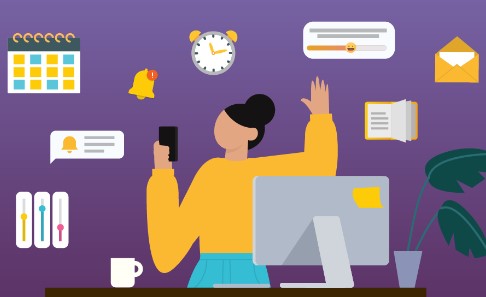
Education in Australia: Impact of Intelligent Learning Platforms (ILPs)
SUKH SANDHUEducation in Australia: Impact of Intelligent Learning Platforms (ILPs)
The rise of intelligent learning platforms has had a profound impact on the education industry, transforming the way students learn and teachers work. Today, many educational services are delivered through platforms such as Lynda.com and Udemy, which offer access to training materials, software, and other services for a small monthly fee. Despite the promise of these platforms, much remains to be learned about their impact on education systems and the people who use them. This article seeks to contribute to this conversation by examining the impact and use of intelligent learning platforms by educators in Australia, to better understand their role in the education system and their potential to create a more equitable education system for learners.
The impact of Intelligent Learning Platforms (ILPs) on education in Australia has been tremendous. ILPs are software platforms that provide a single digital space where students can access their learning and progress at any time, anywhere. They also help teachers deliver better learning experiences and provide a platform for collaboration between educators and students. Many Australian schools have already adopted ILPs, with many more expected to follow suit in the coming years.
One of the most significant impacts of intelligent learning platforms has been on education. The ability to personalise the learning experience and provide assistance when needed has improved student engagement and achievement. Education has been transformed from a passive experience to an active one. This has led to better outcomes and higher standards, inspiring young people to pursue further education and improving the future workforce.
Education in Australia is currently undergoing a transformation as technology is being used to improve the learning experience for students.
In the past, learning management systems (LMS) placed the instructor at the centre of the learning process. Their primary focus was on delivering learning materials and measuring their effectiveness.
Furthermore, students had no way of personalizing their courses, since they went through them sequentially.
Today's learning management systems are designed with learners in mind, making them more similar to learning experience platforms (LXP).
Through social learning, learners are engaged and a sense of community is created, while their mastery of specific competencies is evaluated.
ILPs (Intelligent Learning Platforms), which empower users to do more and achieve more, are the technologies of the future.
Intelligent Learning Platforms or ILP is a digital platform that provides students with access to a mentor, academic support, and other resources to help them succeed in education.
The benefits of Intelligent Learning Platforms or ILP are:
Data synchronisation
Sync data in real-time or in bulk, create and update records, and control what information you send.
Easy access to content
Streamline LMS data with a single sign-on and real-time mobile notifications.
Intuitive interface
Providing students and faculty with a consolidated view of assignments and schedules helps them stay on top of things.
Personalised content
With an ILP, learners get personalised recommendations that provide proactive assistance, enabling learners to see the next best actions in their journey to master goals (e.g., watch a video, participate in a Q&A, enrol in a course, join a study group, etc.)
Have you heard of Intelligent Learning Platforms (ILPs)?
ILPs are the next generation of AI-powered education platforms. They use cutting-edge technology to deliver personalized education, at scale, in a way that is currently only possible with one-on-one tutoring. They can be used for everything from language learning to computer programming and can help students of all ages and abilities to learn at their maximum potential.
Intelligent Learning Platforms (ILPs) are the next-generation technology for digital learning. They are flexible, adaptable, and empowering for both teachers and learners. ILPs can be used for a broad range of learning experiences, including the delivery of online courses, the creation of learning experiences for small groups, or the delivery of individualized learning experiences. They can also be used to supplement in-person learning experiences, allowing educators to provide students with additional practice and feedback.
These powerful learning platforms, which combine machine learning, artificial intelligence, and other advanced technologies to improve learning outcomes, represent a major paradigm shift and offer exciting potential to improve learning and solve education’s biggest challenges. But while ILPs have a long way to go and much more to prove, they are already delivering on some exciting promises. One of the most exciting things about ILPs is that they can be tailored for specific learning goals and contexts, making them particularly useful for students with unique needs and learning styles.
The world is changing, and the education system is changing with it. The next generation of learners will need to be flexible, adaptable, and more independent. These skills can be developed through Artificial Intelligence (AI), and Intelligent Learning Platforms (ILPs) are one way to do this. ILPs are software platforms that combine AI with other technologies, such as educational games, to tailor a unique education experience for each learner.
In Australia, the impact of intelligent learning platforms is being felt in schools, RTOs and universities. Companies such as Coursera, Udacity, and edX are reaching large numbers of people, including those with limited access to education, with high-quality programming that is accessible and affordable. The quality of these courses has enabled people to advance their careers, develop new skills, and enhance their résumé. At the same time, schools and universities are looking to partner with these companies to provide even greater access to world-class education to their students, and to leverage the technology to improve the learning experience for their students.
RECENT POSTS





